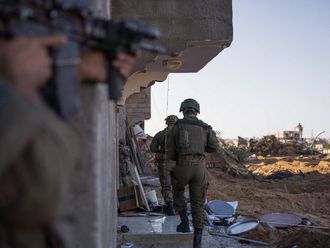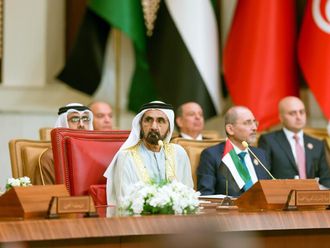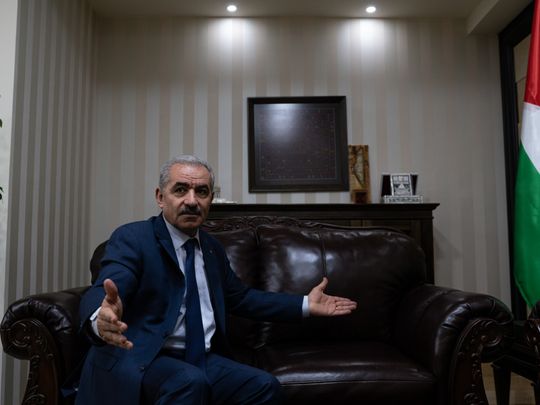
Ramallah, West Bank: Pressured by the Trump administration, confronted with Israeli talk of annexing the Occupied West Bank, increasingly isolated in the Arab world and running out of money, the beleaguered Palestinian Authority is staring at what its new prime minister acknowledges could be its own demise.
“We are in a collapsing situation,” the premier, Muhammad Shtayyeh, said.
A new Israeli anti-terrorism law that withholds some Palestinian revenue has precipitated a financial crisis that could bankrupt the authority by July or August, he said.
If that happens, the authority would have to furlough its police officers, he said - a not-so-veiled threat to Israel, which depends on Palestinian security forces to police the West Bank.
“It’s a very hot summer. At every level,” Shtayyeh warned. “I hope we will not reach that point.”
In one of his first interviews with a major Western news organisation, Shtayyeh also attacked as “blackmail” the Trump administration’s pressure tactics in pushing for a peace plan, beginning with a conference this month on economic development on the Occupied West Bank.
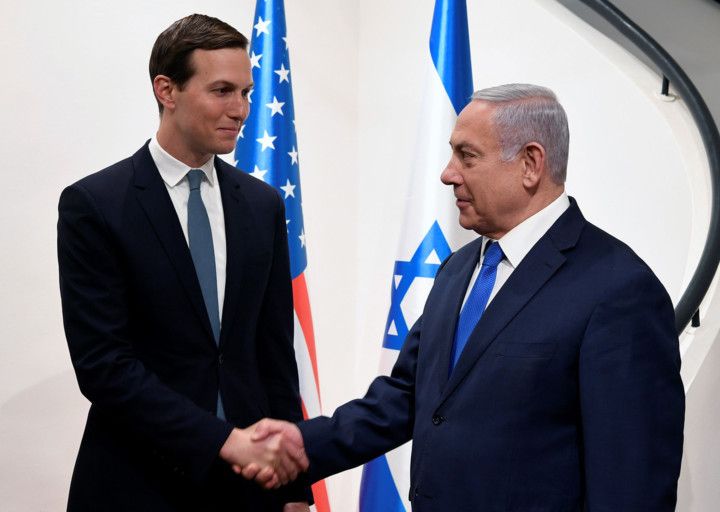
Jared Kushner, the president's son-in-law has been pushing for the plan before Trump was elected, but so far two years into the Trump presidency, there has been little revealed about the contents of the plan.
Shtayyeh, 61, was a top economic-development official and an occasional participant in peace talks with the Israelis before being appointed to the No. 2 job in the Palestinian Authority in March.
His boss, President Mahmoud Abbas, is in his 80s and in poor health.
Since then, Shtayyeh has set about trying to increase public confidence in the authority, while also showing a common touch, as if he hoped to be a candidate to succeed Abbas.
But he starts his job facing an immediate financial crisis.
In February, under a 2018 law modeled on the American Taylor Force Act, Israel began deducting about $138 million in what it calls “pay-to-slay money” from the roughly $2.5 billion a year in taxes and tariffs that it collects for and transfers to the Palestinians.
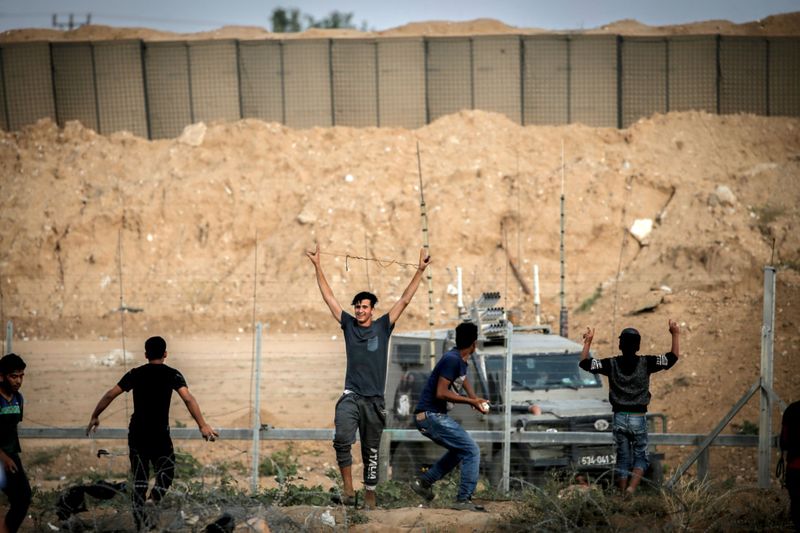
The deduction is equal to Israel’s tally of the financial support that the authority provided last year to Palestinians in Israeli prisons for attacking Israelis, to their families, and to the families of those martyred or killed long ago in uprisings against Israel, including suicide bombers.
Israel and Western countries see those payments, which began in the 1960s, as incentivising terrorism.
But the Palestinians see them as a vital form of welfare that rewards the sacrifices made by freedom fighters and their families, and say that many prisoners had no part in violence and did not receive fair trials.
Unilateral deductions by Israel, they say, violate the agreements under which Israel collects revenue for the Palestinians.
Kamikaze mode
Abbas responded by refusing to accept any revenue transferred from Israel, effectively giving up more than half the authority’s income and setting it on a kamikaze course if Israel does not repeal or suspend its new law.
The authority has already slashed its payroll, with tens of thousands of West Bank civil servants and police officers receiving only 50 per cent of their salaries. Palestinian banks, stretching to lend the authority money while struggling to collect on consumer loans, are exhausting their liquidity, Shtayyeh said.
But accepting the reduced monetary transfer from Israel, he said, would be tantamount to acknowledging that the payments support terrorism, a premise he rejects.
“Politically, we cannot take it that our kids in jail are terrorists,” he said, and legally, it could expose the authority and Palestinian banks alike to lawsuits in Israeli and American courts.
If the Israelis want the authority to collapse, “let them push it to collapse,” he said.
“We will not dissolve the authority. But they can push it to collapse.”
If it does, he added, “The PLO will run the show” - effectively rolling back the clock to before the Oslo peace process began. Even Palestinian recognition of Israel could be called into question if that happened, he said.
When the authority can no longer pay its bills, he said, “we will start by sending our security people home.”
That threat has a specific meaning in Israel, whose security forces work closely with their Palestinian counterparts to root out so-called terrorist cells, prevent attacks on Israelis or pursue the perpetrators, and deconflict Israeli military raids in areas of the West Bank under Palestinian security control.
But Israel generally treats such threats with great skepticism, because its security cooperation with the Palestinian Authority is largely aimed at preventing Hamas, the militant group that controls Gaza, from entrenching itself on the West Bank.
Shtayyeh said he had expected that Israel would seek a resolution of the impasse after Prime Minister Benjamin Netanyahu formed a new government following his reelection in April. But Netanyahu’s failure to do so, and the prospect of another election in September, makes it less likely that the standoff will end quickly, he said.
Our backs are really tight to the wall. We are now in control of the situation. I don’t know for how long.
“Our backs are really tight to the wall,” he said. “We are now in control of the situation. I don’t know for how long.”
Economic workshop
In the interview in his Ramallah office, he did not deviate from the party line in attacking the Trump administration’s plan for an “economic workshop” this month in Bahrain, where it hopes to gather donor nations to convince Palestinian business executives of the financial windfalls they can expect if they embrace the administration’s eventual peace plan.
The Bahrain event has put Palestinian leaders on the defensive politically, pressuring West Bank business leaders to boycott the event while lamenting that other Arab leaders are likely to participate.
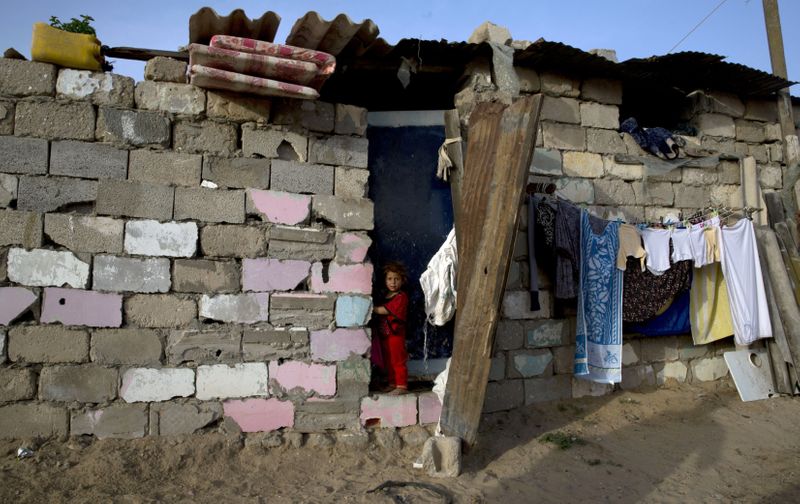
Shtayyeh said it was rich for the Trump administration to talk of improving the Palestinian economy after it had eliminated hundreds of millions of dollars in US aid to projects in the West Bank and Gaza, to the main United Nations agency for Palestinian refugees, and to hospitals in Occupied East Jerusalem.
“These same people are the ones who have been working on the drying up of the financial resources of the Palestinian Authority,” he said.
He said the workshop was doomed to go the way of other attempts to promote an “economic peace” or improve Palestinians’ quality of life, from the Reagan era to the Obama administration. “Nothing has materialised,” he said.
“And now this Bahrain conference. It will be born dead. Nothing will come out of it.”
So far, Saudi Arabia and the United Arab Emirates have agreed to attend, and Qatar reportedly plans to as well. Shtayyeh suggested that others who agree to participate might do so only because of American coercion.
“We hope that Arabs don’t go,” Shtayyeh said.
“Now, we know also that there are countries who are under serious pressure. Some can afford the pressure, and some cannot afford the pressure.”
Asked why Palestinians did not defy expectations and attend the Bahrain conference, if only to disprove Israeli and American critics who call them rejectionist, Shtayyeh said the authority was not invited, but argued that to participate in any part of the Trump process would be to fall into a trap.
He cited a litany of moves by the Trump administration that favoured Israel, including moves to strip millions of Palestinians of their refugee status, recognising Occupied Jerusalem as Israel’s capital and abandoning the pursuit of a two-state solution based on the June 1967 armistice lines.
We know the political agenda. They are saying no to refugees. They are saying no to Jerusalem. They are saying no to two states. They are not respecting ‘67 borders.
“We know the political agenda,” he said.
“They are saying no to refugees. They are saying no to Jerusalem. They are saying no to two states. They are not respecting ‘67 borders. And if this economic track is part of the overall package, what are we accepting? If we are there, people will use our presence there to capitalise on that.”



